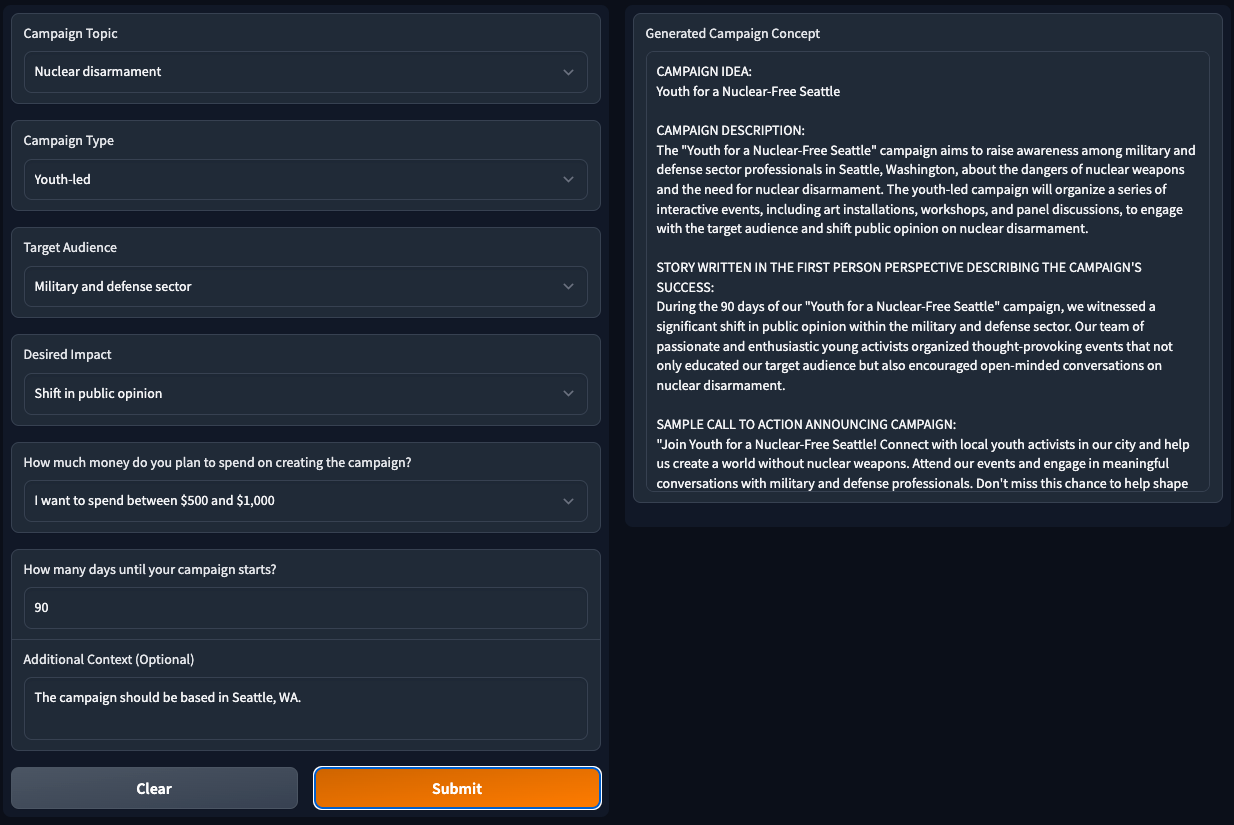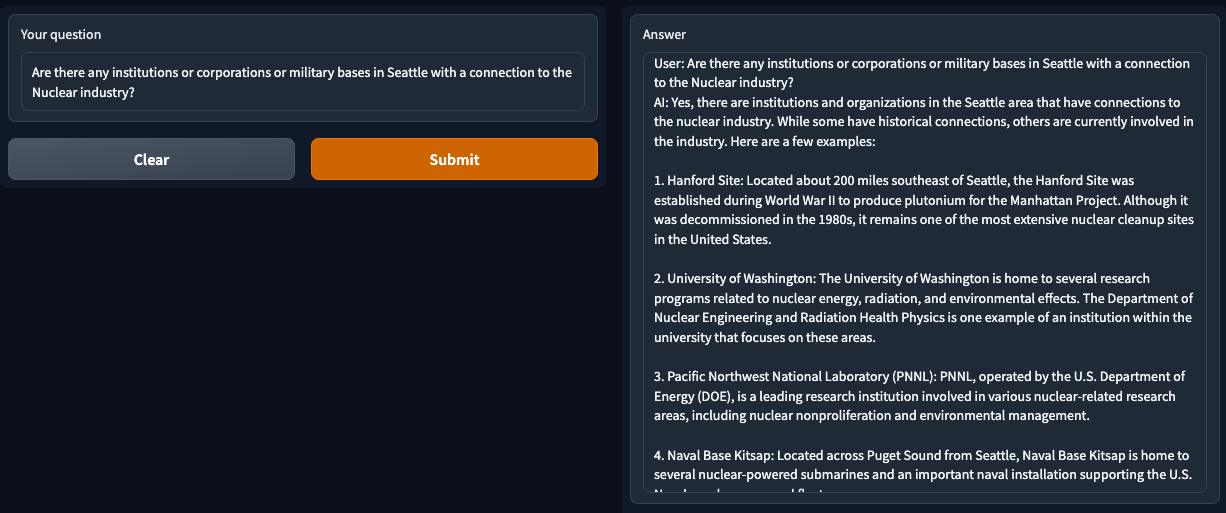Introducing ProtestGPT - an activist AI that generates unique and unconventional protest ideas on any given topic.
ProtestGPT helps activists come up with innovative strategies for building movements and bringing about change.
To give you a taste of what ProtestGPT is capable of, we instructed the AI to generate 200+ distinctive ideas for protesting AI Risk. See what we came up with at protestgpt.com
For each campaign idea, the activist AI created everything an activist would need to get started organizing: a campaign concept, a theory of change, a press release, a social media post, a step by step guide, and more.
Here is a sample of some of campaign ideas:
AIrgent March: Safeguard Humanity's Future A widespread 10-day march advocating for regulation and alternative governance systems against artificial intelligence threats.
AIvocate: Harness AI for a Safer Tomorrow A virtual campaign inspiring businesses to support novel political parties advocating for responsible AI development.
Defending Humanity: AI Vigilance A grassroots campaign to advocate for strict regulation of AI to protect human rights
Digital Autonomy: A Sit-in for GPT Awareness Promoting responsible GPT development through peaceful sit-ins targeting international organizations
This is just a small sample of ProtestGPT's capabilities. Given any topic, ProtestGPT can create a plethora of protest ideas, ensuring that activists are armed with fresh and effective approaches to make a difference.
See more at protestgpt.com
Technical overview of ProtestGPT
ProtestGPT uses OpenAI’s GPT-4 to generate complex campaign concepts on any topic.
The user provides ProtestGPT with a few pieces of information: the campaign topic, the campaign type, target audience, desired impact, resource limitation, time constraint and optional additional context.
Here is an example of how the user interacts with ProtestGPT:
As you can see, the user has requested a campaign on nuclear disarmament that is youth-led and based in Seattle, WA. ProtestGPT has suggested a campaign called “Youth for Nuclear-Free Seattle” to shift public opinion.
Once a campaign concept has been generated, the user can then ask questions interactively. This way they can ask ProtestGPT to change parts of the campaign or give more details about each step.
For example, ProtestGPT can help the user find protest targets. In this case, the user asks, “Are there any institutions or corporations or military bases in Seattle with a connection to the Nuclear industry?”
ProtestGPT replies: “Yes, there are institutions and organizations in the Seattle area that have connections to the nuclear industry. While some have historical connections, others are currently involved in the industry.” And then proceeds to give specific examples including, the Pacific Northwest National Laboratory and Naval Base Kitsap.
For the ProtestGPT.com demo, we automated the process of creating a protest concept and updating a website. We were able to generate over 200 unique ideas far quicker than any human activist at a very low cost.
My intention with creating ProtestGPT is to demonstrate the usefulness of GPT-4 for activism. Let me know what you think!





